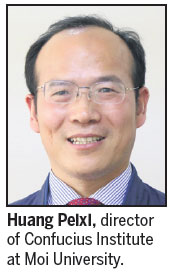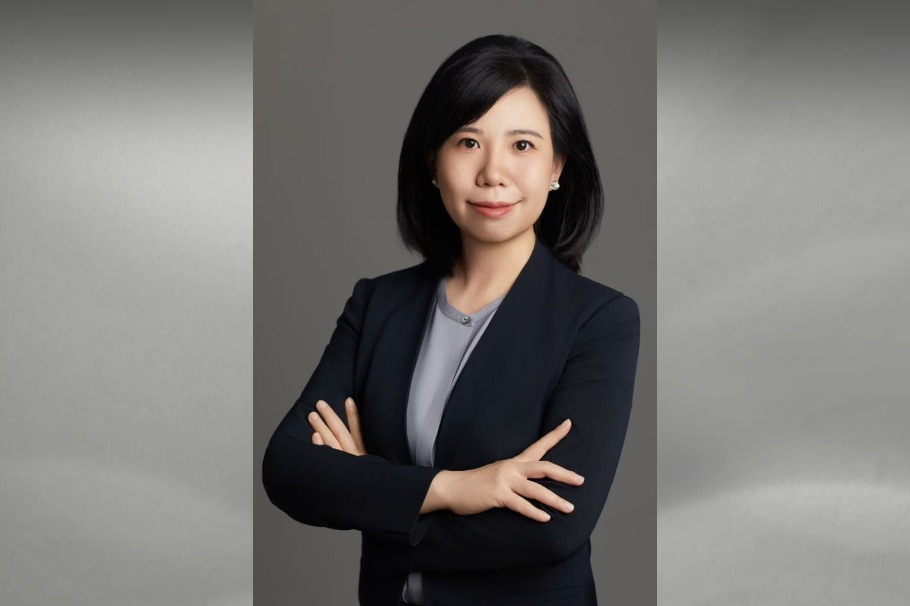Confucius Institute chief has full plate

Ever since he came to the Confucius Institute at Moi University in November, Huang Peixi, director of the institute, has been working toward strengthening the Chinese presence in Kenya.
"Established in 2015, our Confucius Institute, the result of collaboration between Moi University and Shanghai-based Donghua University, focuses on the textile and fashion designing industry," says Huang. "The institute has held many functions, such as hosting Confucius Institute Day, opening a staff worker class to the Moi University teachers and local textile workers and holding a fashion show to bring more colors."
Huang has a lot on his plate. His priorities, however, are preparation for the Maritime Silk Road China-Kenya Textile and Apparel Forum, the popularization of the Chinese language, and strengthening the status and role of the Chinese language.
Donghua University initiated the Belt and Road China-Africa International Cooperation Forum in 2015.The forum was held in turn at Donghua University and Moi University, which is in Eldoret, Kenya. This year, the forum will be held in Shanghai in October.
This forum aims to set up a large platform for experts, scholars and government officials and policymakers from African countries, as well as entrepreneurs of textile and cotton plantations, to exchange views on garments and textiles and their culture, says Huang.

Before the event, the textile and apparel forum will be held in Kenya in June in anticipation that some memorandum of understanding or letter of intent will be signed. The achievements will be brought to Shanghai at the forum in October.
The promotion of the Chinese language and cultural exchanges also are a focus of Huang's work.
The director found that although students were enthusiastic about learning Chinese, the passion faded as time passed. Further investigation found that this was in part because the Chinese course did not earn credits and the students were not aware of the benefits of learning Chinese for their future employment.
"I visited five schools and exchanged views with the directors. I opened Chinese classes in three schools of information sciences, arts and social sciences, and agriculture and natural resources," Huang says.
The three schools now have four classes with a total of 150 students.
While talking with the directors of the institute, Huang elaborated on his plan to popularize the Chinese language.
He plans to combine the teaching of the Chinese language with HSK tests (Chinese proficiency tests), to require the schools to schedule the classes on week days instead of weekends, to attract more students, and to set up an online system to make it easier for students to choose their courses.
However, the system will take some time, Huang says.
During his talks with the schools, Huang and the directors agreed on three ways to strengthen the status and role of Chinese language teaching.
First, for schools where conditions permit, the Chinese language course should be made a credit course.
Second, publicity work has been strengthened at the schools, focusing on further studies and scholarships. The Confucius Institute invited returned students to share their experience with current students.
Third, he is thinking of organizing a campus recruitment event in collaboration with the Kenya Chinese Chamber of Commerce, Huang says.
The director is confident that the three-prong approach will inspire more students to learn Chinese.
panzhongming@chinadaily.com.cn
(China Daily Africa Weekly 05/12/2017 page28)
Today's Top News
- China warns about Japan's intended military buildup
- China urges EU to halt anti-subsidy probes
- Experts: Lai not freedom fighter, but a pawn of the West
- Hainan evolves as gateway to global markets
- Opening up a new bridge between China and world
- Tour gives China-Arab strategic trust a boost






























